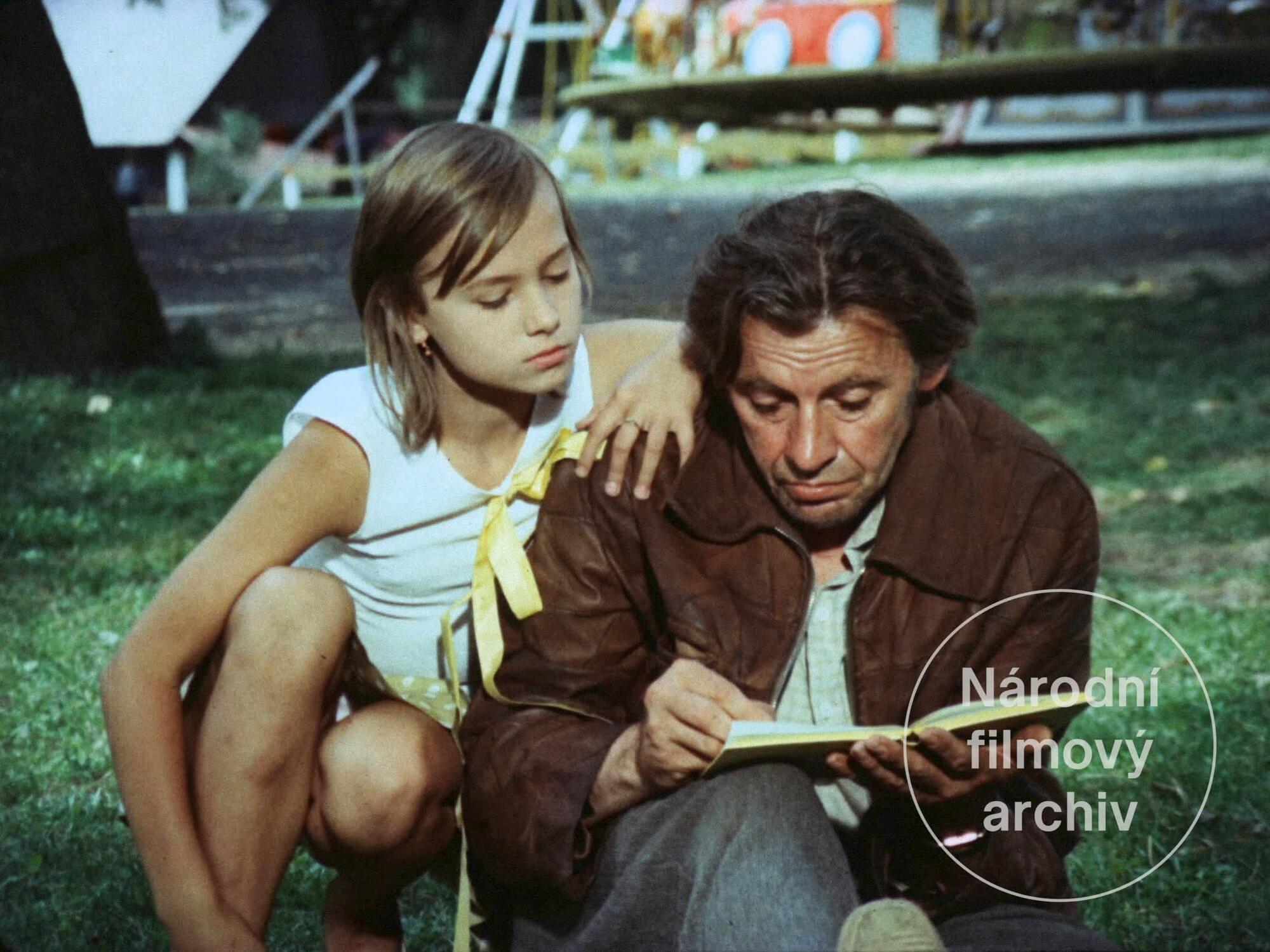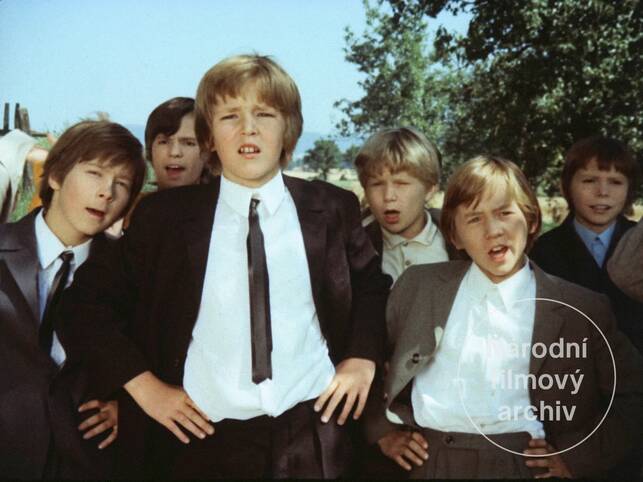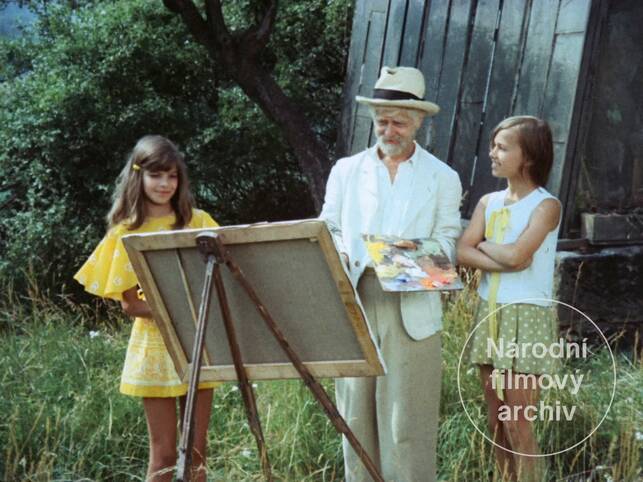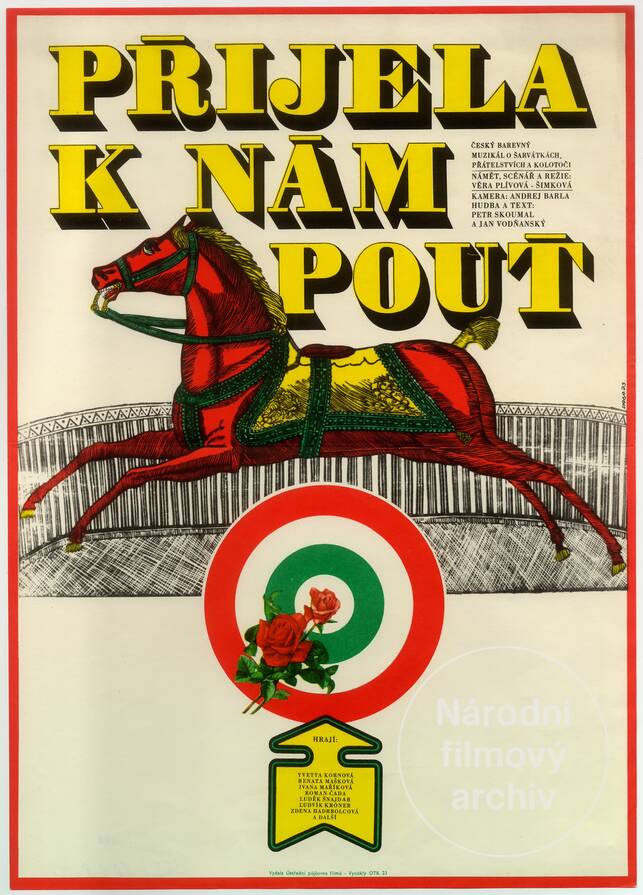Summary
A funfair or a football match with the boys from a neighbouring village – these are always important events in a village child’s life, and it is around these occasions that this classic picture from seasoned director Věra Plívová-Šimková is centred. It is the siblings Žaneta and Janek that are the catalyst for the action in this 1973 release, one of the most popular children’s films of the 1970s. After they arrive in the village along with the showmen, Žaneta gets herself embroiled in a quarrel after failing to return a scrapbook to local girl Markéta. The scrapbook contains the last drawings of Markéta's beloved grandpa, drawn before he passed away. Janek, meanwhile, also gets into trouble, but through no fault of his own. His exceptional football skills – thanks to which Bystré’s team wins every match – make him the target of attacks carried out by boys from the neighbouring village of Skuhrov. The boys decide to lure him into the forest and imprison him in a cave. Although Přijela k nám pouť (The Funfair has Arrived) marks the beginning of a long string of optimistic films typical of the “normalisation” era (the period saw the restoration of the firm communist-imposed conditions that prevailed before the 1960s reforms led by Alexander Dubček), it still offers a rawer depiction of the world of children; it amounts to an echo of the more realistic perspectives offered by cinema during the sixties in Czechoslovakia. Žaneta bears the pain of never having known her mother and the quarrels she experiences with other children are at times more akin to episodes of brutal bullying. Overall, however, this film exudes a positive atmosphere that overcomes all of its shadows. The merry-go-round and the meadow teeming with butterflies help the stars to forget about a reality that is full of contradictions. The longstanding popularity of this motion picture is also down to its host of catchy songs – co-written by Czech songwriter Petr Skoumal, who also composed the score. Another important aspect of this film is the cast, which performs so naturally. The then 20-year-old Libuše Šafránková plays the teacher (the film also offers a glimpse of her sister Miroslava who appears as a girl passing by at the funfair). It is Libuše who so famously performs in the title role of the acclaimed family drama and fantasy picture Tři oříšky pro Popelku (Three Nuts for Cinderella). Children's parts are also taken by talented newcomers, including Yvetta Kornová, Zuzana Bydžovská, Marek Vašut and Miroslav Vladyka.
Read more





